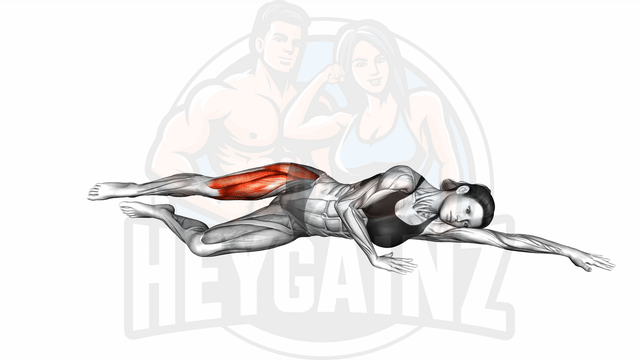
Instructions:
- 1Lie down on one side with the legs extended and stacked on top of each other.
- 2Rest your head on your lower arm, and use your top arm to steady your balance.
- 3Lift your top leg to about hip height and perform circular motions in one direction.
- 4After a set of repetitions, change the direction of the circles.
- 5Switch to your opposite side and repeat.
Tips:
- Keep your torso stable throughout the exercise.
- Ensure your circles are controlled and deliberate.
- Try not to let your top leg drop down as it moves.
- Maintain the height of your leg during the exercise to engage the hip muscles more effectively.